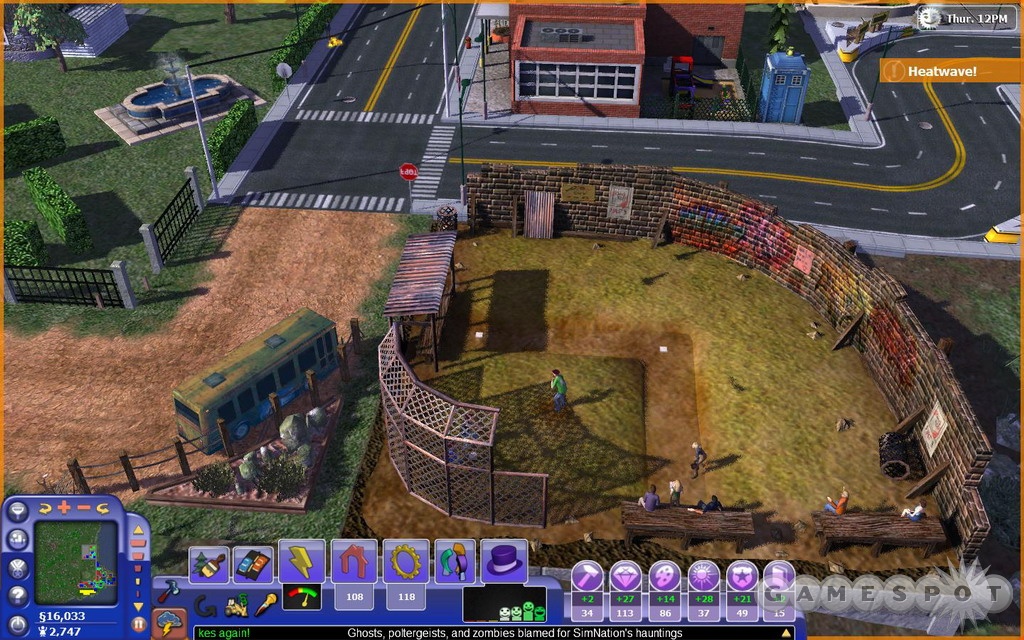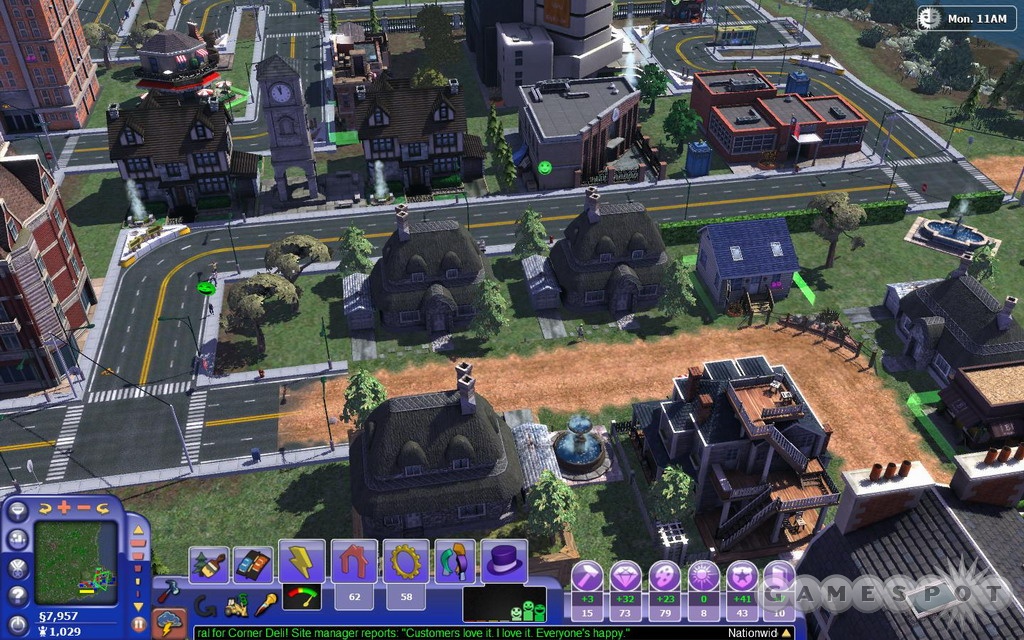There's something not quite right with SimCity Societies. It's a highly casual take on the city-building genre, which isn't bad in and of itself, but it comes across like a politician's campaign speech: rambling on and on, but with no real depth or point. There are a lot of buildings and a lot of decorations, so if you just want to plunk down buildings and make a pretty city, go for it. If you wanted an intricate system of checks and balances to hold it together, or economic depth, or something that would give you any sense of challenge, you won't find it here.

The idea sounds good in theory: Each building you place has a positive or negative effect on a particular social energy. There are six of these energies, from creativity to spirituality, and each building uses or provides them in different amounts. As your city grows, you unlock newer buildings and décor, each of which is separated into various themes, such as "romantic" or "cyberpunk." You don't have to theme your city, so feel free to mix and match. The categorizations are actually rather helpful because you can create themed neighborhoods without having to scroll through full lists of buildings.
Your Sims need to have places to work, hang out, and live, but you'll rarely need to worry about it. To succeed in SimCity Societies, all you have to do is treat your social energies as currency and keep them relatively evened out. Doing that makes everything from Sim happiness to your coffers fall nicely into place. Need authority? Build a town hall. Have too much? Build a police station. Just don't ask why it is a police station spends authority--like many of the categorizations, the connection between a building and its social energies is mighty unclear. Why would a service station spend productivity, while a butcher shop creates it? All you can do is look beyond it and realize that it's not a connection at all--just a random abstraction created to balance out what is in effect six different currencies running simultaneously.
You do need to spend wisely because buildings cost Simoleans in addition to social energies, though you will likely never struggle with your economy. You can view stats on such things as public health, crime, and pollution, but it just feels like there's no point because there's absolutely no challenge. There's no tug of war between industry versus commerce, no real infrastructure to worry about (unless you count energy-producing structures that power the whole map an infrastructure), and no imposed social class system. You may not have a police station, yet your city could go completely free of crime. If you want a challenge, you have to make one. If you want, make a slum, and the crime rate will rise. Or cause a purposeful natural disaster, such as a killer storm, at the touch of a button. It makes things a little more exciting, but never all that engaging.
The building interface is done fairly well here, making it easy to turn buildings at 45-degree angles; plunk them down; and trigger special building events, such as a karaoke bar's release party or the asylum's invitation to hooky-playing Sims to go to therapy. Sims that visit buildings may also take on a buildings characteristics. For example, if a Sim visits a meditation center, he or she may turn into a monk. It's just a visual change, but it's fun to see a mime from your clown school wandering around. This sounds varied enough, but in truth, this stuff doesn't make the gameplay more engaging because you never need it. It's almost like your Sims are window dressing. They can get unhappy, sure, but assuming you keep your social energy numbers relatively even, your Sims need never be a factor.

The game looks pretty and charming, depicting crisp, colorful structures. If you build a zoo, you can zoom in to see swaying giraffes and a lounging tiger (and impressively, these models cast their own shadows). Or if you construct a soccer field, you can watch the players kick the ball around. Watching your Sims walk around is also fun because of their cute exaggerated walks. But be prepared: Though the frame rate isn't that stable to begin with, building a large city can slow it to a crawl, so prepare to turn down your settings, even on a higher-end machine. We also experienced crashes to our desktop on two separate machines, though a recent patch seems to have helped clear up these issues for some players. The game sounds charming, thanks to the endearing Simlish exclamations from your citizens and some quirky sound effects.
There are a bunch of maps to choose from, and you can create random ones as well. So if just want to sit back and build a city on your own terms, you'll find a lot of ways to do it. But without any real challenge, the welcome wears out quickly. Unlike most city builders, there's nothing to keep you engaged, and SimCity Societies falls flat as a result.



